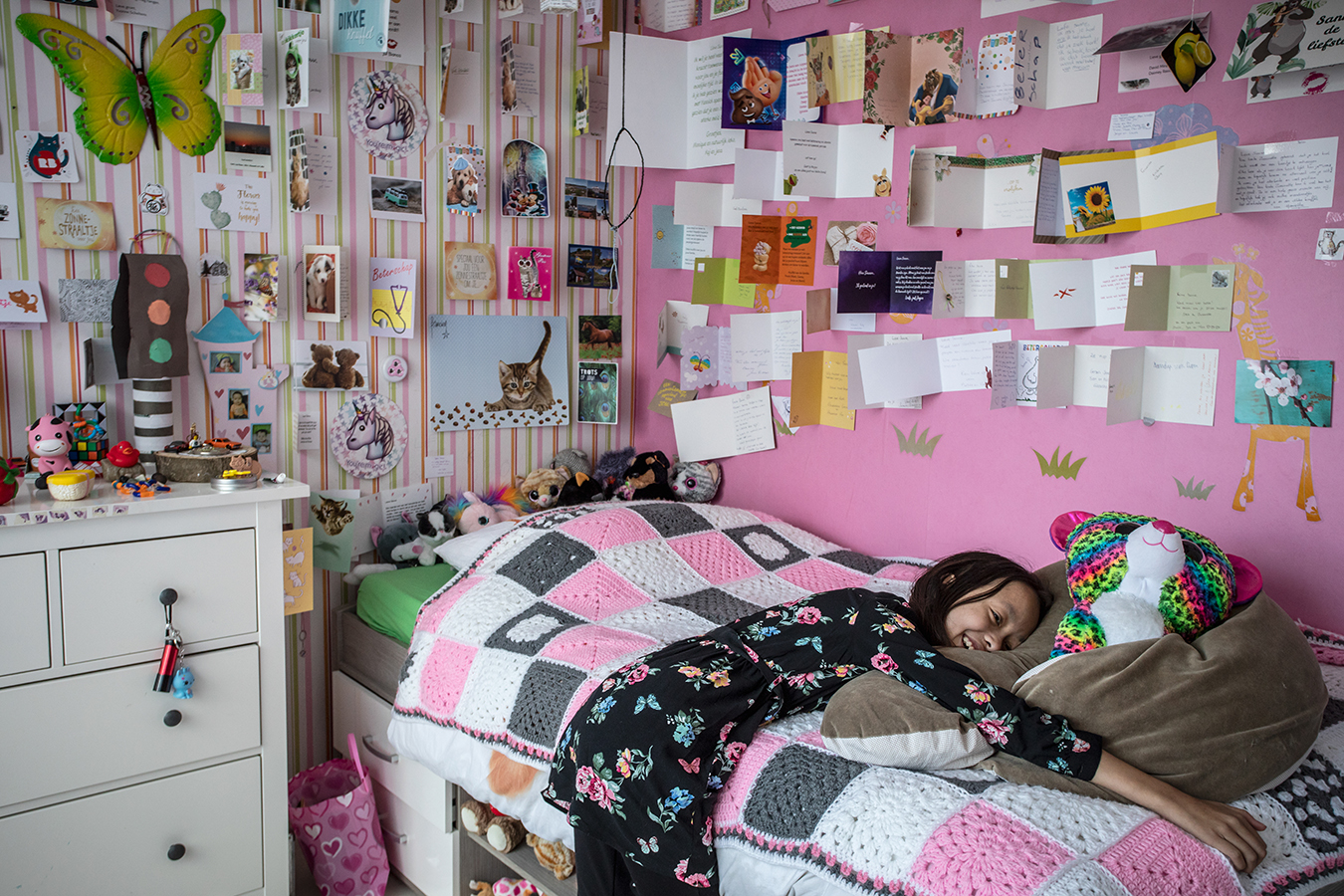Miranda shares the thinking behind what Wellcome wants to achieve in the mental health space in the next 30 years, and how.

Sanne, who is 11 years old, has been having chemotherapy, which at first was very scary for her. But she has been hugely buoyed by the flood of support from her friends and relatives, and she has created a gallery of cards in her bedroom from all the people who love her. Marijn Fidder is trying to help families process these types of experiences by providing photo albums – including positive and negative moments alike – in her project ‘Naughty Cells’.

Wellcome has always funded a wide range of research relevant to mental health, ranging from sub-cellular neuroscience to therapeutic interventions across large-scale populations.
In 2020 we launched our Mental Health Priority Area which committed £200 million to find the next generation of approaches to prevent and treat youth anxiety and depression globally. This was part of our overall vision of a world where no one is held back by mental health problems.
Now, in 2021, we are going one stage further.
Wellcome has become the world’s first large-scale, independent research funder to prioritise mental health science at scale. Mental health is one of three urgent global health challenges, alongside infectious disease, and climate and health, that Wellcome wants to address in the next 30 years.
Over time, we will expand our focus beyond interventions for youth anxiety and depression, while continuing to:
- create a more diverse and inclusive mental health science community, underpinned by common metrics and a shared focus on finding new solutions
- harness the power of population data in a way that balances the needs for privacy of those sharing their data with the needs of open science
- help form new narratives and dedicate new funding to support the development of more personalised and effective interventions.
Central to all we do is our commitment to work with people with lived experience of mental health difficulties as valued experts and co-producers in all our activities.
We are also committed to moving mental health science beyond a focus on the Western, Educated, Industrialised, Rich and Democratic (WEIRD) societies, to consider diverse populations globally, with a particular emphasis on low-resource settings.
We cannot do this alone.
Above all we want to work with anyone who sees themselves as part of the mental health science family, whether they are an expert by virtue of their lived experience, or they are a data scientist, an economist, a psychiatrist, a historian, a neurologist, a social scientist or a stastician. In addition, we want to collaborate with wider groups including:
- other research funders from across the world, to embed core metrics and bring new philanthropy to bear
- international non-government organisations, to embed key principles of putting lived experience at the heart of policy and practice, positioning local innovation as a focus for learning and funding, and envisioning mental health as larger than healthcare
- workplaces and other relevant bodies such as schools and colleges, to find innovative ways to embed mental health science in peoples’ lives so we can best find out what works for whom, in what context, and why
- holders of large datasets, whether academic or commercial, to find the best ways to make use of large-scale data to advance mental health science
- national governments, to invest in mental health science to unlock the next generation of treatments
Keep up to date on how you can get involved via LinkedIn and Twitter. And find out more about our work in mental health.
Miranda shares the thinking behind what Wellcome wants to achieve in the mental health space in the next 30 years, and how.